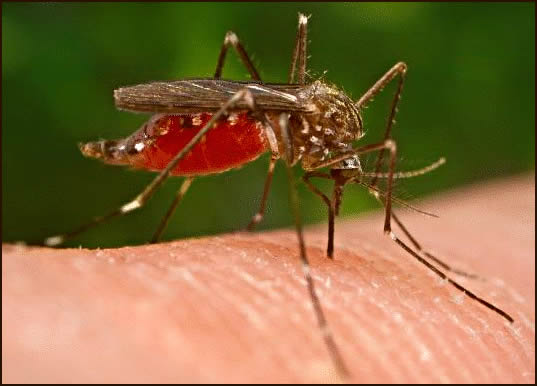The World Health Organization selects the theme for each year’s World Malaria Day, which is observed on April 25 in countries and organizations all across the world, Entrepreneurng Report.
The topic for this year is “Time to deliver zero malaria: invest, innovate, implement,” with an emphasis on putting ideas to reach marginalized groups into practice.
According to the most recent World Malaria Report, a significant portion of the worldwide malaria burden is borne by the WHO African Region, with Nigeria having the largest burden globally. Around 95% of all malaria cases and 96% of all malaria deaths occurred in the African continent in 2022, with children under five making up 80% of all malaria fatalities.
Over half of all malaria deaths globally were caused by four African nations, including Nigeria. The Democratic Republic of the Congo came in second with 12.6% of malaria deaths worldwide, followed by the United Republic of Tanzania with 4.1% and Nigeria with 3.9%.
With an estimated 97 million cases and 300,000 fatalities each year, malaria continues to be a serious public health issue in Nigeria. Even though there has been improvement in lessening the impact of this disease, there is still much effort to be done to eradicate it.
It is essential to evaluate where we are and what we can do to advance the goal of a malaria-free Nigeria before World Malaria Day in 2023.
A parasite disease called malaria is spread through the bites of infected mosquitoes. Pregnant women and children under the age of five are the groups most affected by the illness, which can be fatal in severe situations. To combat malaria, the Nigerian government and several non-governmental organizations have made major efforts, such as the distribution of bed nets sprayed with an insecticide, indoor residual spraying, and increased accessibility to potent antimalarial medications.
However, there are several obstacles in the way of these interventions, such as a lack of financing, shoddy healthcare systems, and pesticide and antimalarial drug resistance.
International funders have boosted their assistance for malaria prevention initiatives in numerous nations, including Nigeria, in recent years. To reach the worldwide targets for malaria eradication, financing is still insufficient. Sustained investment is therefore required in malaria research and control, with a focus on boosting local funding for malaria programs and lowering reliance on external donors.
The government must prioritize funding for malaria programs and strive toward sustainable financing structures because Nigeria has the highest rates of malaria in the world. By ensuring that malaria interventions are sufficiently funded and put into action, the disease’s burden on the most vulnerable communities will be reduced.
Innovation has been a major factor in the advancement of the malaria eradication effort. Innovative strategies have made a substantial impact on lowering the prevalence of malaria in many regions of the world, including the creation of new antimalarial medications, insecticides & vaccines, and larval control of the malaria parasite.
To address the remaining difficulties in malaria management, additional creative approaches are still required. This entails the creation of new vector control methods, such as long-lasting insecticidal nets resistant to insecticide resistance, as well as the application of new diagnostic methods and therapies to increase the precision and efficiency of malaria diagnosis and treatment.
Improved access to diagnosis and treatment is also necessary in the fight against malaria. Reduced disease severity and the avoidance of fatalities depend heavily on early diagnosis and rapid treatment. Particularly in rural regions, community-based strategies like mobile clinics and community health workers can assist increase access to malaria diagnosis and treatment. To hasten the elimination of malaria, effective collaborations are also essential.
The government must collaborate with groups from civil society who are ready to help fight malaria, especially in Nigeria’s rural areas. Stakeholders and government agencies leading the fight against malaria should keep in mind that the disease’s eradication does not necessitate a total absence of cases in the nation because imported cases will occasionally result in the introduction of new cases due to international travel.
In conclusion, the urgent challenge in Nigeria is to reduce malaria transmission from severely endemic levels. Malaria won’t be a significant public health burden if endemic transmission is reduced to low levels. Let’s recommit to the fight against malaria and achieve zero malaria in Nigeria as we observe World Malaria Day in 2023.
Source: Punch











